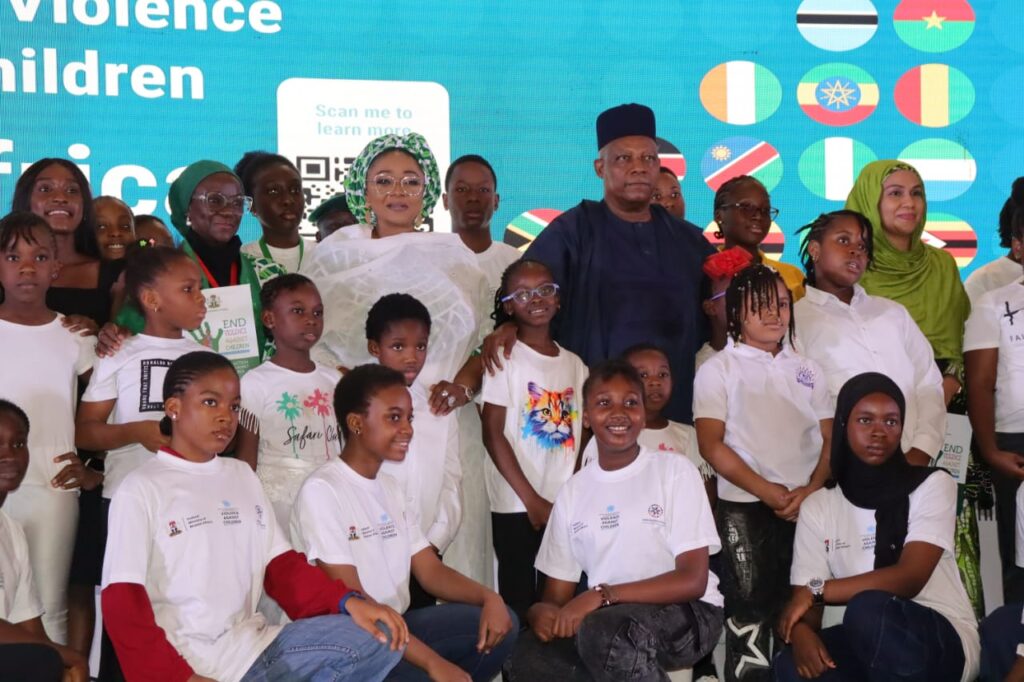The Federal Government of Nigeria has reaffirmed its strong commitment to safeguarding the rights and future of African children.
Minister of Women Affairs, Imaan Sulaiman-Ibrahim, made this known while delivering a keynote address at the Regional Meeting of Pathfinding Countries on Ending Violence Against Children, held in Abuja.
The Minister urged participating countries to strengthen their collective resolve to combat all forms of violence against children—physical, sexual, emotional, and structural.
“Africa is rising in innovation and enterprise, but our progress will remain incomplete if we do not protect our most vulnerable—the children. Violence against children is a betrayal of our shared humanity and a threat to national security,” she said.
Addressing dignitaries, global leaders, and civil society groups, Sulaiman-Ibrahim emphasized the shared responsibility of “pathfinding nations” under the Global Partnership to End Violence Against Children.
She acknowledged progress made but noted that pervasive abuse, neglect, trafficking, and harmful traditional practices continue to undermine the dignity and future of African children.
She called for stronger legal and policy frameworks aligned with global conventions, integrated child protection services accessible across both urban and rural communities, and preventive strategies such as community sensitization, parenting support, and school-based safety initiatives.
The Minister also unveiled The Nigeria Concept—a strategic framework developed by the Ministry of Women Affairs in alignment with the Nigeria Agenda 2050 and the National Development Plan (2021–2025).
The plan focuses on gender equality, child protection and development, and inclusive policies for vulnerable populations.
Aligned with global commitments such as the Sustainable Development Goals (SDGs), the Convention on the Elimination of All Forms of Discrimination Against Women (CEDAW), and the African Charter on the Rights and Welfare of the Child, the plan also integrates child protection into humanitarian responses—particularly in conflict zones—through trauma-informed care, psychosocial support, and access to education.
A major milestone highlighted during the address was the over 1,000% increase in the ministry’s budget, approved by President Bola Tinubu.
The funding has enabled structural reforms, fostered public-private partnerships, and led to the establishment of the Child Protection Knowledge and Data Center—Nigeria’s first facility dedicated to tracking and responding to cases of violence against children.
“This reaffirms Nigeria’s commitment made at the First Ministerial Convening on Ending Violence Against Children in Bogotá, and gives practical expression to the Renewed Hope Agenda for children,” she stated.
The Minister stressed that no country can end violence against children in isolation.
She advocated for regional policy harmonization, cross-border child protection frameworks, joint funding strategies, and shared data and best practices.
“Let us speak with one voice at the African Union. Let us place children at the heart of our development agenda,” she urged.















